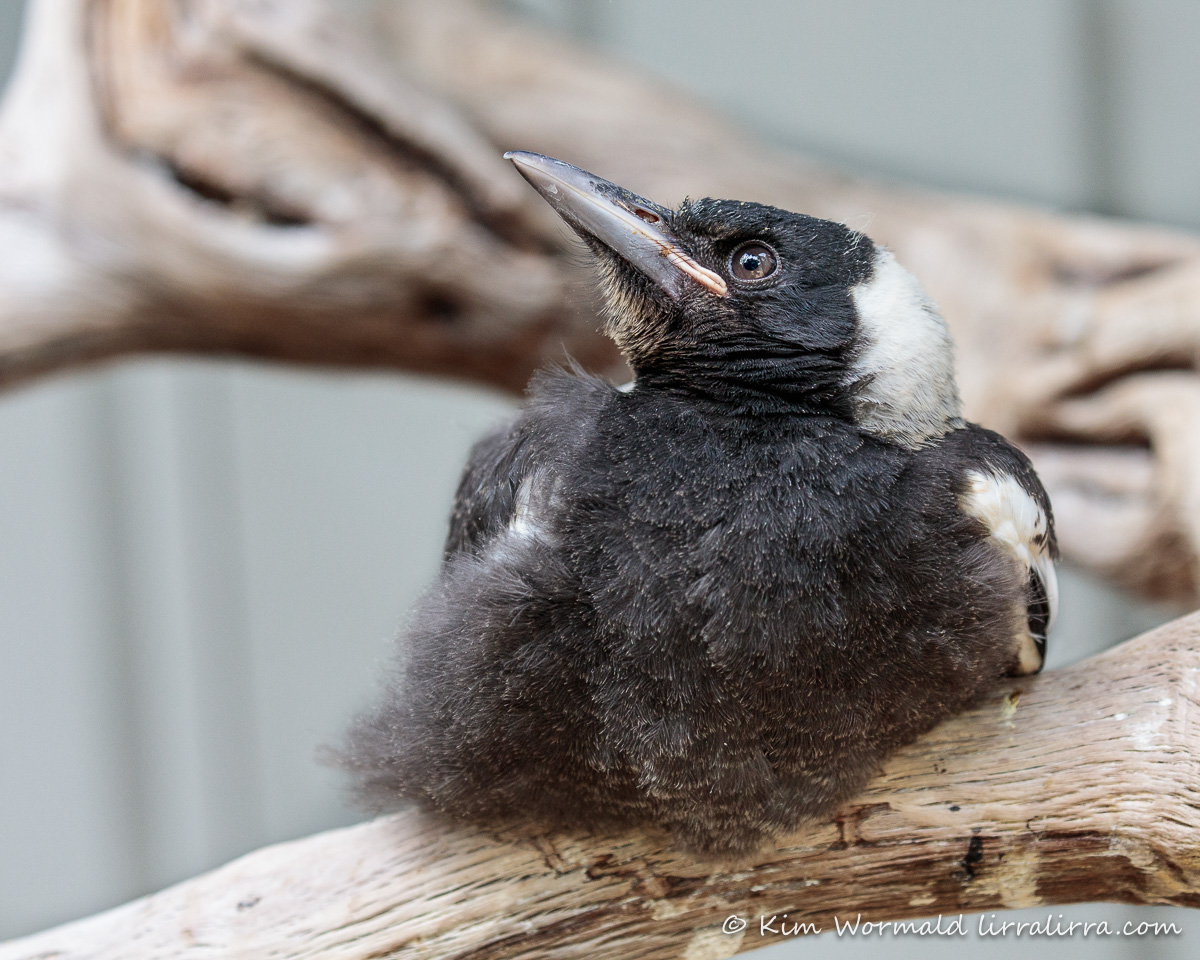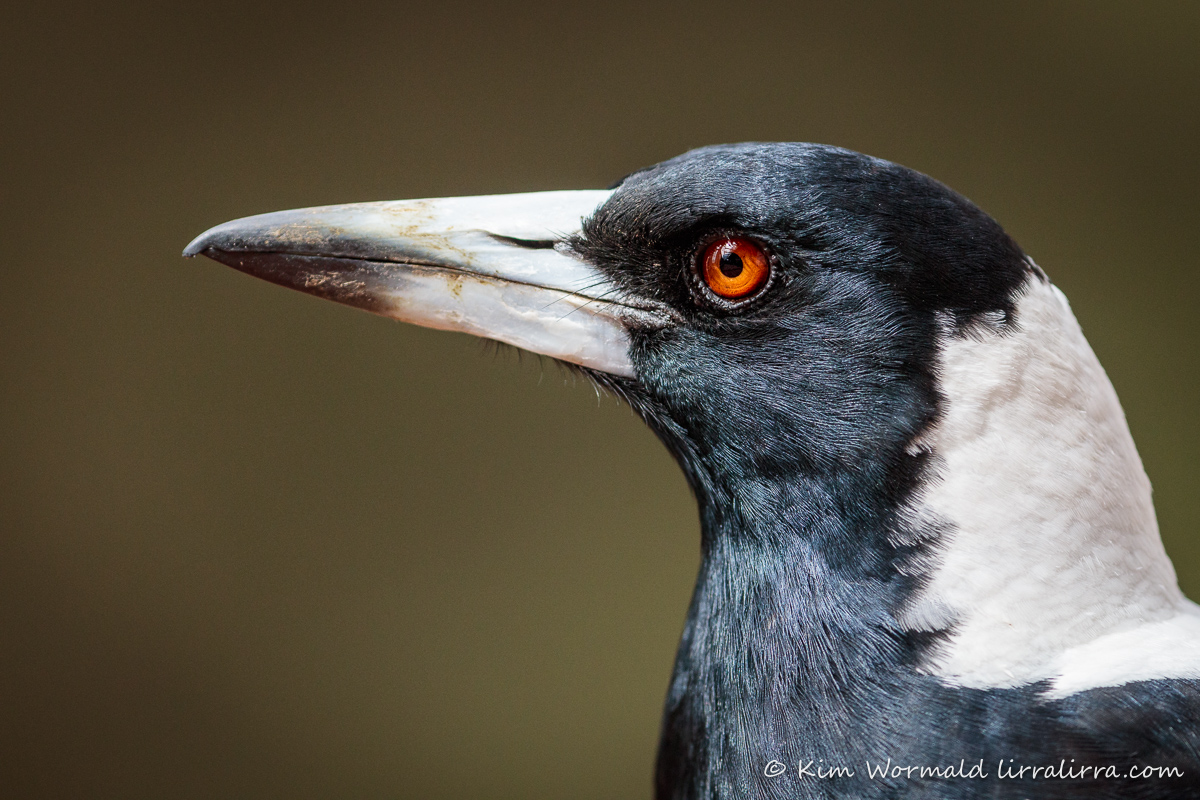Wildlife shelters can overflow with nestlings during spring but maybe there are other options to try for fluffy little tackers that are spotted beneath a tree.

Australian Magpie (Cracticus tibicen)
A long time ago I was a wildlife carer for a couple of years; it was exhausting, heart-breaking and incredibly rewarding. I mainly worked with birds and especially enjoyed raising magpies.
Firstly, I want to thank all the awesome wildlife carers out there and all the members of the public who follow through when they see a critter that needs help. Secondly, I want to list some things to try if you find a native baby bird.
Nestlings
- nestlings are likely to have skin showing and are best helped if they can be safely returned to their nest
- alternatively a replacement nest can be made from a small tub or box with drainage holes poked in it and lined with dry grasses and safely placed in the tree
- in either case watch from a distance to confirm that the parents are visiting the nest
- it’s a wonderful feeling when it works, which in my experience it usually does
Fledglings
- fledglings are older babies that are fully feathered and have left the nest but are still being fed by their parents
- it is normal for them to be sitting on the ground, hopping around and possibly flying short distances
- if they are in danger from people, animals or traffic it’s good to put them into bushes or onto a branch
- unless they are injured or in danger it’s good to watch them for a while to confirm that their parents are feeding them
Injured, not being fed, cold or in danger
- if the bird is injured, abandoned, cold or in danger they will need more care
- gently place them into a lidded box with small air holes, on dried grasses, a small towel or similar
- handle the bird as little as possible and keep it in a dark, warm, quiet place while you organise expert help
- call a vet or wildlife shelter
Important reminders
- always ensure your own safety
- parent birds don’t reject babies that have been handled by humans
- do not offer food or water as it can be inappropriate or dangerous for the bird
 Australian Magpie (Cracticus tibicen)
Australian Magpie (Cracticus tibicen)
1/1600, f/6.3, ISO 1600
Hopefully the baby magpie grew to be a fine adult specimen, like the one above that was recently foraging in my garden to feed its nestlings.
It is widely believed that birds cannot smell but ongoing studies are showing that this isn’t necessarily true, I found this article particularly interesting: Audubon – birds can smell
Some wildlife care links are listed on my links page, if you have local links you’d like added please let me know. If you have any further suggestions or experiences about bird rescue, please add them in the comments.
Happy birding
Kim
~ thank you for visiting and commenting
~ if you would like to join the subscribers receiving a weekly email when lirralirra is updated, please use the ‘subscribe’ box above right

Terrific Post Kim. Thank you! So needed especially at this time of year. Thanks so much for all you do to help wildlife.
Thanks Denise, and thank you for all YOU do for wildlife! Kim
Hi Kim,
I saw that the bird of the month at Birdlife Australia was the Australian magpie
Your pictures are very beautiful, as usual I love them. And the eyes of adult are wonderful.
I like magpies, such intelligent birds. I raised two magpies one time, the parents abandoned the nest, is that strange no ? The first one died because of the fall of the nest. The second one was so adorable. She was doing stupid things like a puppy lol.
You’re right to give the information about the chicks ! Sometimes people do anything when they have no knowledge.
ps : I’ll write you an email soon
All the best and happy birding
It is strange that the parents abandoned the nest, they must have been disturbed too much, or maybe injured. I’m glad the second nestling did so well
Thank you Kim. I will share this information on the Council webpage,
That’s great Jacob, thank you!
Hi Kim,
Raptor Rehab Specialist in Ballarat area is Bruce Terrill. Licensed rehab shelter. Mob:0401 413794.
Thanks,
Bruce
Thank you Bruce. I’ll add your details to my links page
Great post Kim. Well done!
Thank you Neil
Wow really useful and pragmatic information. Thanks heaps
I hope it helps you keep helping nestlings
Huge thanks to all wild-life carers. Indeed to carers in general.
I adore magpies. Their warble sings of home to me.
And thanks for the tips.
It’s beautiful to wake to the sound of magpies singing, definitely a sign of home
Aw what a sweet little fluff ball! Great tips as well – thanks!
They are gorgeous babies, so loud and determined to be fed